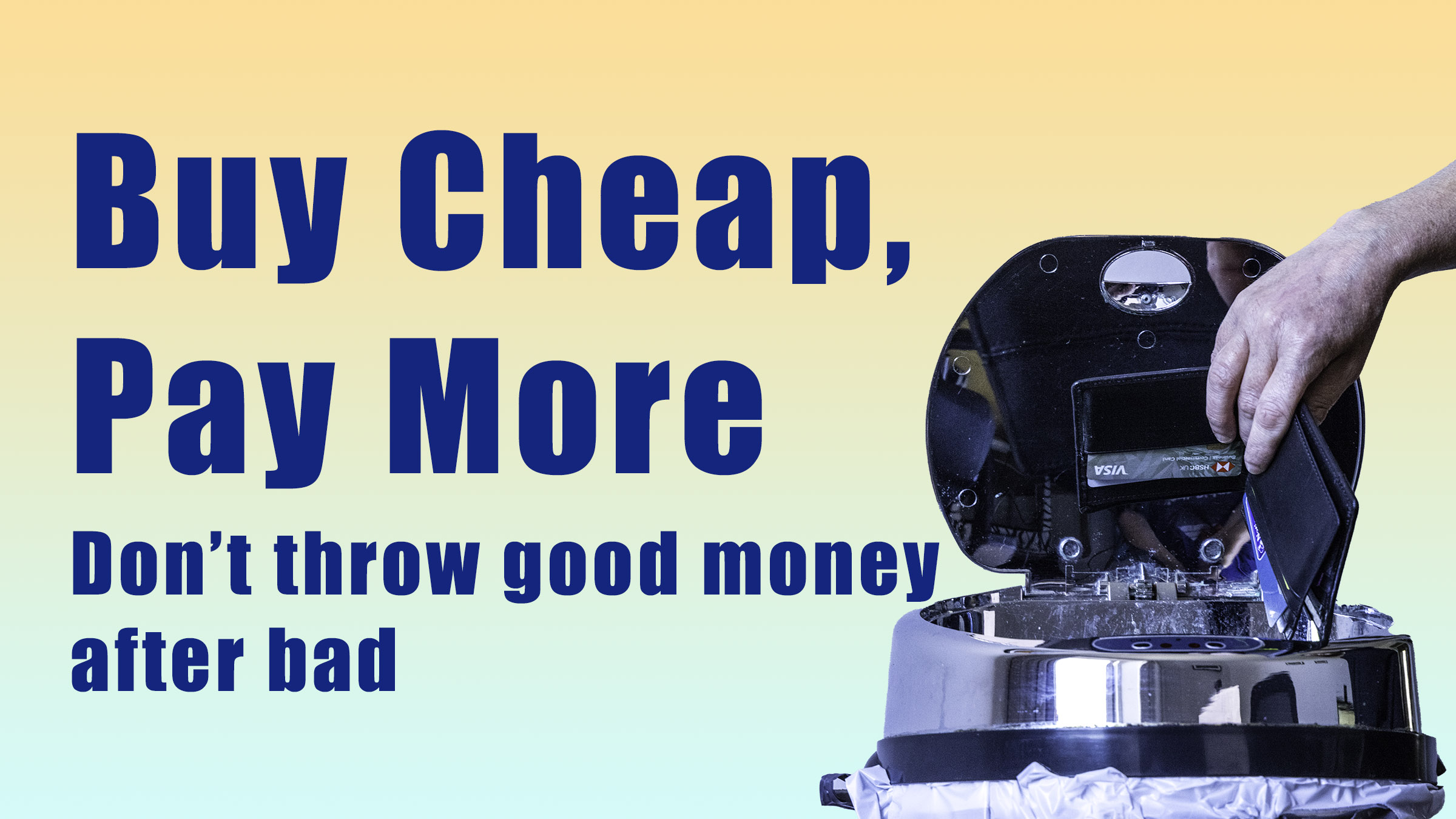July 14, 2021
Buy Cheap, Pay More
When you buy a cheap photography product, you could sometimes end up paying more. How do you know when to open the wallet?

This week I am finally getting to run the Landscape & Seascape Photography Workshop. It’s a great day of taking photos along the banks of the River Forth, where we use a filter system to balance the sky and foreground and smooth water. It has led to a few questions about the ‘best’ system to buy. I always recommend Kase Filters first of all, first and foremost because I use them because I think they are the best around. However, they are pretty pricey; a basic starter system is over £300. When asked to recommend a budget system, I am wary of giving a view because, in my experience, buying one will cost more in the long run.
Why does it cost more?
Let’s look at a real-life example of buying filters (and I’ll try hard not to name suppliers). A search on Amazon delivers a cheap filter system with ten graduated colour filters, 4 ND grad filters, a holder, a selection of step-up rings for just £23.99. I can get them delivered tomorrow and hopefully be able to send them back the day after. The reviews detail vignetting around the edges, scratches appearing after a couple of uses, and misting in the middle of the image.
OK, lesson learned, time to buy a professional system. However, there are professional systems and professional systems; some aren’t entirely as professional as others. A well-known manufacturer has a Pro-series filter system. This time the holder with a couple of grads and an ND filter comes in at £130. It is better than the very budget end. However, I’ve seen them used in previous landscape workshops. Use a single filter, and they are probably OK, although there is again an issue with vignetting caused by the filter being too large for wide-angle lenses. Put a second filter on (say, a Grad and an ND filter) and the cheap construction of resin filters, and there is a very distinct colour cast across the image. I’ve been here and quickly got frustrated by the results.
So far, we have spent over £150 and still haven’t got a system that does the job. Eventually, and inevitably the £300 is spent buying the original filter system. So you’ve now spent £450 buying a £300 system. Why not instead spend that money on adding an extra good quality filter?
So never buy cheap?
You could easily imply that it’s silly to buy cheap from the filter example; in fact, a few weeks ago, I argued that purchasing top of the range also isn’t the best idea. That certainly isn’t the case. The key is to know when paying less gets a better return. When it comes to tripods and filter systems, I would always pay as much as possible to get the best product. The best filters use fantastic quality glass. The production process isn’t cheap and reflects the price. Similarly, tripods need to be sturdy and ideally light to carry. That requires carbon fibre parts that are again not cheap.
However, there are flash systems that are half the price of the similar camera manufacturer version. They look exactly the same, and in my experience, they work just as well. How do you know when to buy cheap and when to open the wallet? As with the clients attending my workshops, the best way to find out is to ask people you can see are getting quality results. Many photographers, me included when it comes to Kase filters, might get a small kickback for recommending a brand. Even when they do, they should be able to articulate the reasons why they are championing a brand. I hope I’ve done that in this short post.
One of the things I am most proud of in how I run my business is that I am happy to offer free advice. If you’re unsure whether to buy product X over product Y, send me a message on the contact form. I would much prefer that a potential client saves money in the long run by spending a few minutes answering a mail. The offer is there if you need advice contact me for help.
Give us your feedback
If you’ve got any questions or comments, leave them below. You can sign up for the Edinburgh Photography Workshop monthly newsletter, where you’ll get regular updates on exciting things happening in photography and some great tips. Sign up by clicking here.
About the author
As well as running Edinburgh Photography Workshop, Rich Dyson is a professional photographer. His photographs are regularly used in newspapers such as The Times, Guardian and Daily Telegraph. He also had two solo exhibitions and featured in a members sponsored exhibition in the Scottish Parliament. You can see and buy his photography at richdysonphotography.com